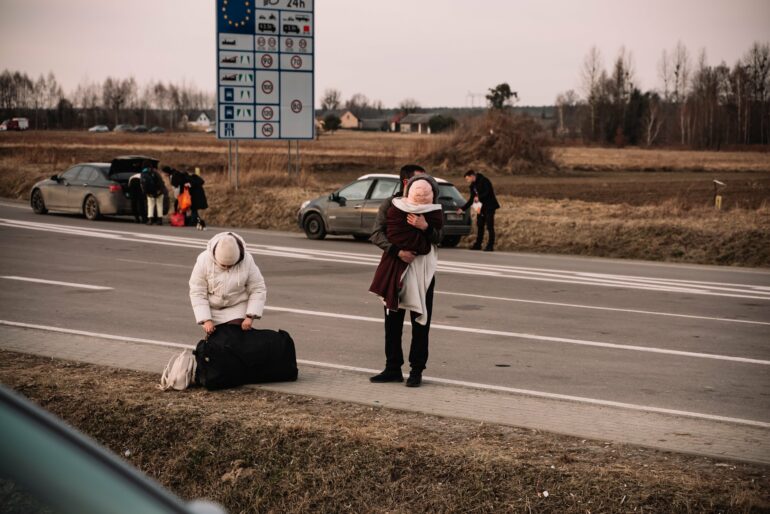The attitudes of European people towards specific types of asylum seeker have been stable over time, research in Nature suggests. The study identifies attributes of refugees that people are more likely to view favorably and suggests that Ukrainians displaced by the Russian invasion in 2022 were welcomed because they fit this profile. The findings may help us to understand the factors that drive support for refugees, which could be used by policymakers to respond to pressures on the asylum system.
In the past decade, the 2015–2016 Syrian refugee crisis and the 2022 Russian invasion of Ukraine have contributed to the arrival of millions of asylum seekers into European countries. How such repeated humanitarian crises affect people’s perception of refugees is unclear; one view is that ever-increasing numbers of refugees may reduce support from the public, a view that is challenged by the welcoming response towards Ukrainian refugees.
To understand public attitudes towards refugees, Kirk Bansak, Jens Hainmueller, and Dominik Hangartner compare results of repeated experiments conducted during the 2015–2016 and 2022 refugee crises. Approximately 33,000 citizens in 15 European countries were asked to evaluate randomly varied profiles of asylum seekers (around 18,000 and 15,000 people were surveyed in 2016 and 2022, respectively).
The surveys reveal characteristics of refugees that are viewed preferably by Europeans, such as being female, Christian and young (around 21 years old). In addition, the circumstances of displacement had an effect, with refugees escaping war being viewed as more favorable than those moving for economic reasons.
The authors find that these public preferences have remained stable and that general support has, if anything, increased over time. They also show that Ukrainians were welcomed in 2022 because of their demographic and displacement profile, but this does not come at the expense of other marginalized refugee groups, suggesting that support for all refugees remains generous, especially during times of crisis.
One limitation of the study is that the data were only collected at two points in the past decade, which may mean that fluctuations in public views between these points have been missed. However, the consistency seen in both study periods suggests that preferences have remained stable, the authors conclude.
More information:
Kirk Bansak et al, Europeans’ support for refugees of varying background is stable over time, Nature (2023). DOI: 10.1038/s41586-023-06417-6
Provided by
Stanford University
Citation:
Study reveals the European public’s attitudes about refugees have remained stable over time (2023, August 10)



